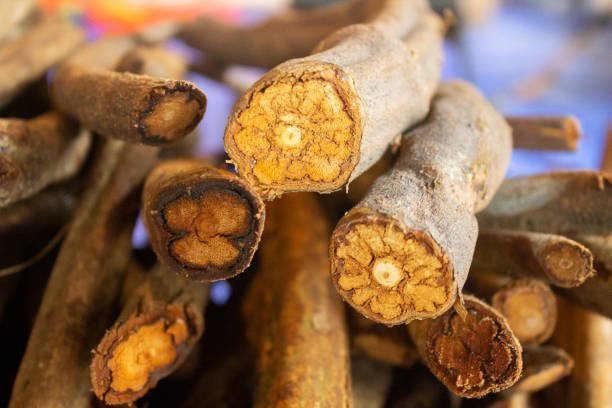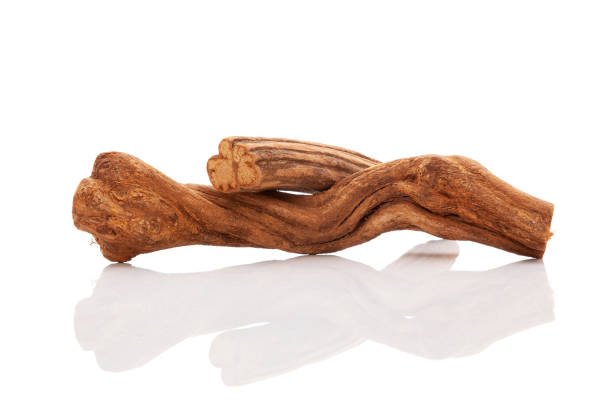In a world where modern medicine often falls short, many individuals embark on a different kind of healing journey that involves exploring plant medicines’ power. In this fast-paced society, the prevalence of depression has reached alarming heights, leaving many searching for alternative methods to find relief and regain a sense of self-awareness.
Enter the world of plant medicines – a realm where ancient wisdom meets modern science, offering a glimmer of hope for those seeking transformative healing experiences. Through the use of carefully selected plants and herbs, individuals are discovering a profound connection between nature and their mental well-being.
Join us as we embark on a journey through the landscapes of plant medicines, uncovering the hidden gems that hold the potential to heal and transform our lives. Together, let’s delve into the fascinating world of plant medicines and discover their profound impact on our journey to self-awareness and healing from depression.

The History and Cultural Significance of Plant Medicines
Plant medicines have been used for centuries across various cultures for their healing properties. Indigenous tribes, such as the Amazonian shamans, have long understood plants’ power in promoting physical, mental, and spiritual well-being. These ancient healing practices have recently gained mainstream attention, with more people seeking alternative forms of therapy. Plant medicines, also known as entheogens, have been used in traditional ceremonies and rituals to treat various ailments, including depression. The knowledge and wisdom associated with using these plants have been passed down from generation to generation, preserving their cultural significance.
The use of plant medicines is not limited to indigenous cultures. Ancient civilizations, including the Egyptians, Greeks, and Chinese, also recognized the therapeutic benefits of plant-based remedies. These civilizations developed sophisticated systems of medicine that incorporated the use of herbs, plants, and other natural substances. Even today, plant medicines, such as Ayurveda and Traditional Chinese Medicine, are vital in traditional medicine practices.
Throughout history, plant medicines have been revered for their ability to heal the physical body, mind, and spirit. The use of these medicines is deeply rooted in a holistic approach to wellness, recognizing the interconnectedness of all aspects of our being. As we explore the power of plant medicines in the context of depression, we begin to understand their potential to address the underlying causes of this complex condition.

Types of Plant Medicines Commonly Used for Depression
Regarding plant medicines for depression, several notable options have gained recognition for their therapeutic effects. One such plant is St. John’s Wort (Hypericum perforatum), a well-known herb that has been used for centuries to alleviate symptoms of depression. St. John’s Wort contains compounds believed to increase serotonin, dopamine, and norepinephrine levels in the brain, which are neurotransmitters associated with mood regulation. Studies have shown that St. John’s Wort can be as effective as certain antidepressant medications, making it a popular choice for those seeking a natural alternative.
Another plant medicine that has gained attention in recent years is Ayahuasca, a potent entheogenic brew used in traditional Amazonian ceremonies. Ayahuasca contains a combination of plants, including Banisteriopsis caapi and Psychotria viridis, which create a powerful psychedelic experience together. Ayahuasca is known for its ability to induce deep introspection and spiritual insights, often leading to profound emotional healing. Many individuals have reported transformative experiences with Ayahuasca, claiming that it has helped them gain a new perspective and relieve their depressive symptoms.
In addition to St. John’s Wort and Ayahuasca, other plant medicines commonly used for depression include CBD (Cannabidiol) derived from hemp or cannabis, psilocybin mushrooms, and kratom. Each of these plant medicines offers a unique approach to healing, and their effects can vary from person to person. It is important to note that using these substances should always be done under the guidance of trained professionals and in a safe and supportive environment.
How Plant Medicines Work to Heal Depression
The mechanisms by which plant medicines heal depression are still being studied and understood. However, several theories and research findings illuminate their potential therapeutic effects. Among many plant medicines, one common thread is their ability to modulate brain chemistry and promote neuroplasticity.
St. John’s Wort, for example, is believed to work by inhibiting the reuptake of serotonin, dopamine, and norepinephrine, thereby increasing their availability in the brain. Serotonin, in particular, is known as the “feel-good” neurotransmitter and plays a crucial role in regulating mood. By increasing serotonin levels, St. John’s Wort may help alleviate symptoms of depression and improve overall well-being.
On the other hand, Ayahuasca works through a combination of chemical compounds that interact with serotonin receptors in the brain. This interaction leads to altered states of consciousness and can facilitate deep emotional processing. The psychedelic experience induced by
Ayahuasca often brings suppressed emotions and traumas to the surface, allowing individuals to confront and heal these underlying issues.
CBD, another plant medicine gaining popularity, interacts with the endocannabinoid system in the body, which regulates mood, sleep, and appetite. CBD has been shown to have anxiolytic and antidepressant effects, potentially promoting a sense of calm and well-being.
While the exact mechanisms of action may vary, plant medicines for depression often work holistically, targeting the symptoms and underlying causes of the condition. By addressing the root causes, these medicines have the potential to provide long-lasting relief and promote proper healing.

Personal Stories of Individuals Who Have Found Healing Through Plant Medicines
The power of plant medicines to heal and transform lives can be seen through the personal stories of individuals who have embarked on this journey. Countless testimonials and accounts highlight plant medicines’ profound impact on their mental well-being and overall quality of life.
One such story is that of Sarah, who struggled with depression for years, trying various medications and therapies unsuccessfully. Frustrated with the lack of results, she turned to Ayahuasca as a last resort. Sarah experienced a deep sense of connectedness and clarity during her Ayahuasca ceremony. She could confront her past traumas and release the emotional baggage weighing her down for years. After the ceremony, Sarah reported a significant reduction in depressive symptoms and a newfound sense of purpose and joy.
Another inspiring story is that of Mark, who found relief from his depression using St. John’s Wort. Having experienced unpleasant side effects from traditional antidepressant medications, Mark was skeptical about trying another pharmaceutical option. After thorough research and consultation with a herbalist, he decided to try St. John’s Wort. Over time, Mark noticed a gradual improvement in his mood and energy levels. He regained his zest for life and engaged in activities that he had once lost interest in. Mark’s story is a testament to plant medicines’ power and potential to transform lives.
These personal stories, among many others, provide hope and inspiration for individuals seeking alternative methods of healing from depression. While everyone’s journey is unique, these accounts highlight plant medicines’ profound impact on mental well-being and the potential for true transformation.
The Science Behind Plant Medicines and Their Effects on the Brain
While plant medicines have been used for centuries, it is only recently that scientific research has begun to shed light on their mechanisms of action and effects on the brain. Advances in neuroscience and the growing interest in alternative therapies have sparked a renewed interest in understanding the science behind these ancient practices.
Studies have shown that plant medicines, such as St. John’s Wort and Ayahuasca, can significantly affect brain chemistry. For example, research has demonstrated that St. John’s Wort increases serotonin, dopamine, and norepinephrine levels in the brain, similar to the mechanism of action of certain antidepressant medications. These neurotransmitters are crucial in regulating mood, and their imbalance is often associated with depression.
On the other hand, Ayahuasca has been found to activate serotonin receptors in the brain, leading to altered states of consciousness and the release of suppressed emotions. Functional magnetic resonance imaging (fMRI) studies have shown that Ayahuasca can modulate brain activity in regions involved in emotion processing, such as the amygdala and prefrontal cortex. These findings provide insights into the profound psychological effects of Ayahuasca and its potential as a therapeutic tool for depression.
The scientific understanding of plant medicines is still in its infancy, and much more research is needed to comprehend their complex effects on the brain fully. However, the growing body of evidence suggests that these ancient practices hold promise for the future of mental health treatment.

Precautions and Safety Guidelines When Using Plant Medicines for Depression
While plant medicines offer tremendous healing potential, it is essential to approach their use with caution and respect. These substances can be powerful and profoundly affect the mind and body. Here are some precautions and safety guidelines to consider when using plant medicines for depression:
1. Seek professional guidance: Working with trained professionals with experience in plant medicine therapy is crucial. They can advise, ensure your safety, and help you navigate the journey.
2. Do thorough research: Before embarking on a plant medicine journey, educate yourself about the specific substance you intend to use. Understand its potential effects, risks, and contraindications.
3. Start with a low dose: It is recommended to start with a low amount to assess your sensitivity and tolerance to the substance. Gradually increase the dosage as needed under the guidance of a professional.
4. Create a safe and supportive environment: Set and setting are crucial in the plant medicine experience. Create a peaceful, comfortable space where you feel safe and supported. Surround yourself with trusted individuals who can offer guidance and assistance if needed.
5. Consider your mental and physical health: Certain medical conditions, medications, or mental health conditions may contraindicate using plant medicines. Please consult with a healthcare professional to ensure it is safe for you.
6. Integrate the experience: Integrate the insights and experiences into your daily life after a plant medicine journey. Journaling, meditation, and therapy can be helpful tools for integration.
7. Practice self-care: Plant medicine journeys can be intense and emotionally challenging. Prioritize self-care before, during, and after the experience. Engage in activities that nourish your mind, body, and spirit.
By following these precautions and safety guidelines, you can enhance plant medicines’ potential benefits while minimizing potential risks.
Integrating Plant Medicines into a Holistic Approach to Mental Health
Plant medicines should not be seen as a standalone solution for depression but as part of a holistic approach to mental health. Taking a comprehensive approach that addresses various well-being aspects can enhance plant medicine therapy’s effectiveness and sustainability.
In addition to plant medicines, it is crucial to incorporate other therapeutic modalities, such as psychotherapy, mindfulness practices, exercise, and a healthy lifestyle. These complementary approaches can provide a solid foundation for mental well-being and support the transformative effects of plant medicines.
Psychotherapy, in particular, can play a crucial role in integrating and making sense of the experiences and insights gained from plant medicine journeys. A skilled therapist can provide guidance, support, and a safe space for processing emotions and integrating the lessons learned.
Mindfulness practices, such as meditation and breathwork, can also be valuable tools for cultivating self-awareness and emotional regulation.
These practices can complement the insights gained from plant medicine experiences and help promote a sense of inner calm and balance.
Additionally, regular physical exercise, maintaining a healthy diet, and prioritizing sleep is essential for overall well-being. These lifestyle factors can influence mood, energy levels, and brain chemistry, ultimately supporting healing.
By embracing a holistic approach to mental health and integrating plant medicines into this framework, individuals can optimize their healing journey and work towards long-lasting transformation.

Finding Reputable Sources and Practitioners for Plant Medicine Therapy
Finding reputable sources and practitioners for plant medicine therapy is paramount to ensure a safe and practical experience. Here are some tips for finding reliable and trustworthy resources:
1. Do your research: Look for reputable organizations, retreat centers, and practitioners that have a solid reputation and positive reviews. Online forums and communities dedicated to plant medicine discussions can be valuable for gathering information and recommendations.
2. Seek recommendations: Ask for recommendations from trusted friends, family members, or healthcare professionals who have experience with plant medicine therapy. Personal referrals can provide valuable insights and help narrow down your search.
3. Verify credentials and experience: When selecting a practitioner or facilitator, inquire about their training, experience, and certifications. Look for individuals who have undergone proper training and have a deep understanding of the specific plant medicine you intend to explore.
4. Trust your intuition: Listen to your intuition when selecting a practitioner or retreat center. When interacting with them, please pay attention to how you feel, and trust your gut instincts. A genuine, caring, and supportive approach is crucial for a safe and transformative experience.
5. Ask questions: Be bold and ask questions and seek clarification about the plant medicine process, safety protocols, and integration support. A trustworthy practitioner will be open and transparent in addressing your concerns.
6. Follow legal and ethical guidelines: Ensure that the plant medicine therapy you are considering is lawful and follows ethical guidelines. Be aware of any legal restrictions or regulations in your country or region.
By following these guidelines and finding reputable sources and practitioners, you can increase the likelihood of having a safe and meaningful plant medicine experience.
Conclusion: Embracing the Transformative Power of Plant Medicines in the Journey to Self-Awareness and Healing from Depression
Exploring plant medicines offers hope for those seeking transformative healing experiences in the face of depression. Through the careful selection and use of these ancient remedies, individuals embark on a journey of self-awareness and healing, reconnecting with nature and their inner wisdom.
Plant medicines’ history and cultural significance provide a rich tapestry of wisdom and knowledge passed down through generations. As we delve into the types of plant medicines commonly used for depression, we discover the diverse options available, each with its unique approach to healing.
The science behind plant medicines offers insights into their mechanisms of action, shedding light on their potential to address the underlying causes of depression. Personal stories of individuals who have found healing through plant medicines
